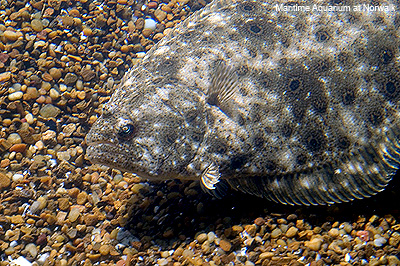America's Ocean Fish Populations: Protect Our Right to Know if This Public Resource is Well Managed
 Americans have a right to know how our ocean fish are being managed and the impacts of fishing on ocean wildlife, but that right is under attack in a new fisheries data proposal from the National Oceanic and Atmospheric Administration Fisheries Service (NOAA Fisheries). U.S. ocean fish populations are a multi-billion dollar public resource that supports hundreds of thousands of jobs in the fishing and seafood industries, and plays an essential role in the health of ocean ecosystems. Every year, millions of taxpayer dollars are invested in fisheries management including the collection of data by professional observers on fishing vessels. These observers collect data about what fish are caught, where, and how fishing damages other ocean wildlife. This information is essential for citizens to understand the impacts of fishing on our public trust resources, and to meaningfully participate in fishery management to help ensure the effective conservation of ocean fish, wildlife, and ecosystems.
Americans have a right to know how our ocean fish are being managed and the impacts of fishing on ocean wildlife, but that right is under attack in a new fisheries data proposal from the National Oceanic and Atmospheric Administration Fisheries Service (NOAA Fisheries). U.S. ocean fish populations are a multi-billion dollar public resource that supports hundreds of thousands of jobs in the fishing and seafood industries, and plays an essential role in the health of ocean ecosystems. Every year, millions of taxpayer dollars are invested in fisheries management including the collection of data by professional observers on fishing vessels. These observers collect data about what fish are caught, where, and how fishing damages other ocean wildlife. This information is essential for citizens to understand the impacts of fishing on our public trust resources, and to meaningfully participate in fishery management to help ensure the effective conservation of ocean fish, wildlife, and ecosystems.
NOAA's proposed fisheries data rule would significantly restrict the public's access to fisheries data, including publicly-funded observer programs. The proposal would undermine the extensive public participation envisioned in America's ocean fishing law, the Magnuson-Stevens Fishery Conservation and Management Act (MSA), and could erode transparency, and openness in government.
Specifically, this proposed rule opens the door to:
- Requiring the public to ask permission from private fishing permit holders who have a direct financial stake to access essential information about fishing and its impacts on ocean wildlife, even when the data collection is funded by taxpayers at $40 million per year.
- Potentially providing information to the public in an “aggregated form” that could disguise specific impacts of fishing on our public trust resources. The proposed rule essentially asks us to accept that the government will develop procedures for making the information public in a useful form. The proposal does not describe how data will be aggregated -- Americans have a right to know how NOAA Fisheries proposes to do this and whether NOAA Fisheries' procedures will enable the public to fully understand and participate in protecting our ocean resources.
NOAA Fisheries should withdraw this fatally flawed proposal and replace it with one that will increase transparency, participation, and collaboration so that researchers, scientists, and members of the public can effectively exercise their right to understand and contribute to the successful management of our nation's valuable fisheries. The public comment period for the proposal ends on October 21, 2012.






